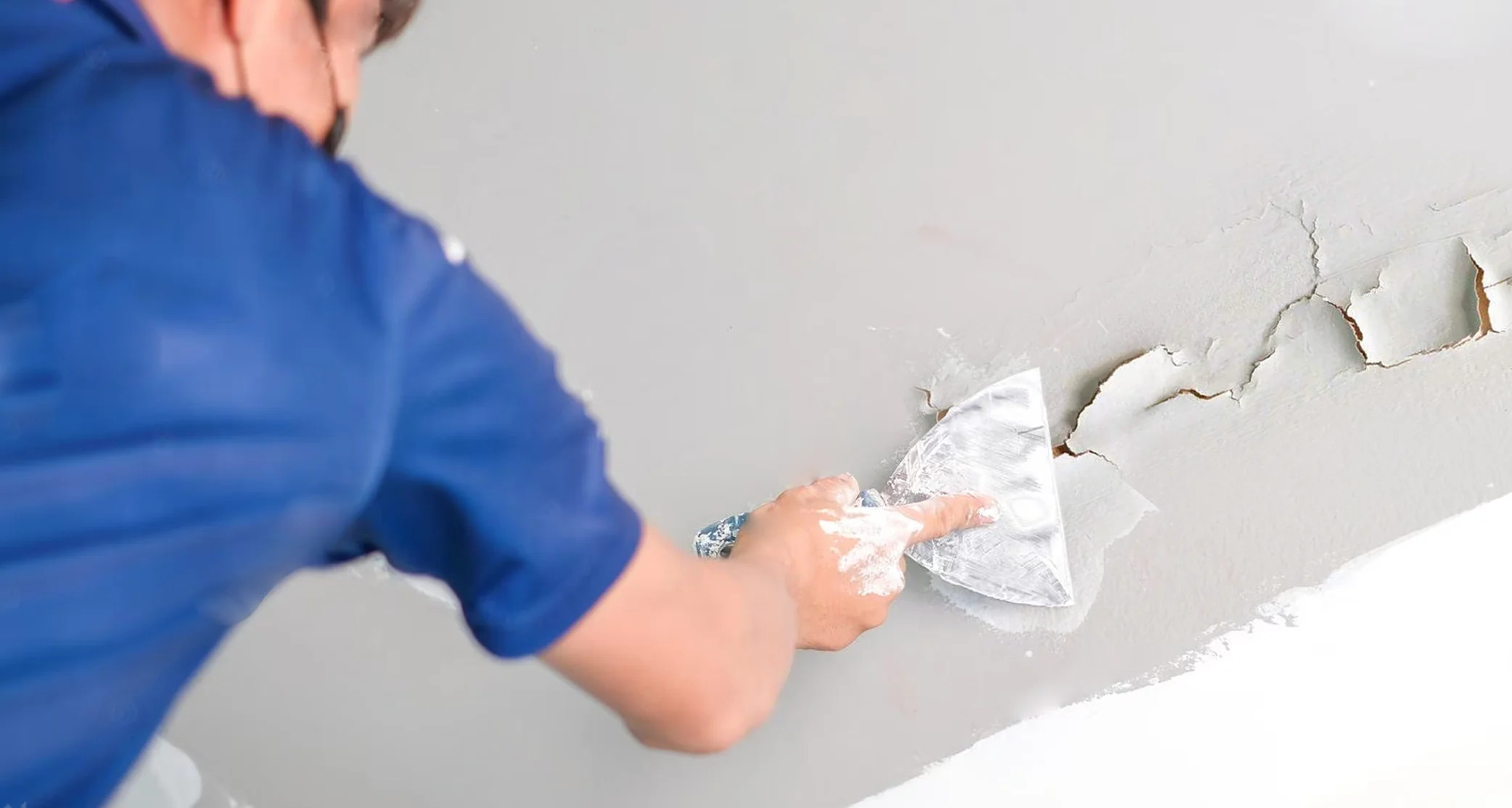Home>Articles>Why Renovating Might Be More Popular Than Moving Again


Articles
Why Renovating Might Be More Popular Than Moving Again
Modified: January 6, 2024
Discover articles and insights on why renovating your home might be a more popular choice than moving again. Explore the benefits and considerations of home renovations.
(Many of the links in this article redirect to a specific reviewed product. Your purchase of these products through affiliate links helps to generate commission for Storables.com, at no extra cost. Learn more)
Introduction
When it comes to deciding whether to renovate your current home or move to a new one, many homeowners find themselves torn between these two options. Renovating has become increasingly popular in recent years, with more and more people choosing to invest in remodeling and upgrading their current living spaces rather than going through the hassle of moving.
There are various factors that contribute to the rising popularity of renovations as an alternative to moving. From financial considerations to emotional attachments, homeowners are finding compelling reasons to stay put and make changes to their existing properties. In this article, we will explore why renovating might be more popular than moving again, highlighting the benefits, cost considerations, personalizations, emotional attachments, location importance, time and effort involved, potential increased property value, as well as potential challenges and drawbacks of renovating.
Key Takeaways:
- Renovating offers homeowners the chance to customize, personalize, and enhance their current living spaces, providing a practical and fulfilling solution that reflects their style and needs.
- Careful planning and budgeting for renovations can prove to be a more cost-effective option compared to the expenses associated with moving, allowing homeowners to achieve desired upgrades and improvements without the added costs of purchasing a new property.
Benefits of Renovating
Renovating your home can bring a multitude of benefits, making it an attractive option for homeowners looking to enhance their living spaces. Here are some of the advantages of renovating:
- Customization and Personalization: One of the biggest advantages of renovating is the ability to customize and personalize your home according to your tastes and needs. Whether it’s updating the kitchen, adding an extra bedroom, or creating a home office, renovations allow you to tailor your living space to fit your lifestyle.
- Improved Functionality: Renovations can greatly improve the functionality of your home. By reconfiguring rooms, removing walls, or adding storage solutions, you can create a more efficient and practical layout that suits your family’s needs.
- Energy Efficiency: Renovations offer an opportunity to make your home more energy-efficient. Investing in insulation, energy-efficient appliances, and sustainable materials can lower utility bills and reduce your environmental footprint.
- Value Appreciation: Renovations can increase the value of your home. By updating key areas such as the kitchen, bathroom, or exterior, you can attract potential buyers if you decide to sell in the future or simply enjoy the benefits of a higher home value.
- Enhanced Comfort: Renovations can significantly improve your overall comfort and enjoyment of your home. From upgrading outdated heating and cooling systems to installing new flooring or adding a cozy fireplace, renovations can create a more pleasant and inviting living environment.
These are just a few of the benefits that come with renovating your home. Whether you are looking to add more space, modernize the design, or increase energy efficiency, renovating can help transform your house into your dream home.
Cost Considerations
One of the key factors that homeowners need to consider when deciding whether to renovate or move is the cost involved. Renovations can be a significant investment, and it’s important to carefully assess your budget and financial circumstances. Here are some cost considerations to take into account:
- Budget Planning: Before embarking on any renovation project, it’s crucial to establish a realistic budget. Consider the scope of the renovations you have in mind, research the costs of materials and labor, and factor in any unexpected expenses that may arise during the process.
- Cost of Moving: Moving to a new home can also be expensive. You need to consider various costs, such as real estate agent fees, legal fees, moving expenses, and potential repairs or upgrades needed in the new property. Comparing these costs with the cost of renovating can give you a better idea of which option is more financially viable.
- Return on Investment: It’s important to consider the potential return on investment (ROI) for your renovations. While some renovations may increase the value of your home, others may not provide a significant return when it comes time to sell. Research local real estate market trends and consult with professionals to determine which renovations are likely to provide the highest ROI.
- Financing Options: If your renovation project exceeds your current budget, explore different financing options available to you. This could include home renovation loans, lines of credit, or refinancing your mortgage. Be sure to assess the terms and interest rates of each option to make an informed decision.
- Long-Term Expenses: Consider the long-term expenses associated with both renovating and moving. Renovations may lead to ongoing maintenance and repair costs, while moving to a new home may come with higher property taxes or HOA fees. Evaluate these potential expenses to understand the overall financial impact of each decision.
By carefully considering the cost implications of renovating versus moving, you can make a well-informed decision that aligns with your budget and financial goals.
Personalization and Customization
One of the main advantages of renovating your current home is the ability to personalize and customize the space to fit your specific preferences and lifestyle. By undertaking renovations, you have the opportunity to create a home that truly reflects your personality and meets your unique needs. Here’s why personalization and customization are important:
- Expressing Your Style: Renovations allow you to express your personal style and design preferences. From choosing paint colors and materials to selecting fixtures and finishes, you have the freedom to create a space that resonates with your aesthetic taste.
- Functional Enhancements: Personalizing your home through renovations can also lead to functional enhancements. You can optimize the layout and flow of rooms to better suit your daily activities and improve the overall efficiency of your living space. Whether it’s adding a home office, a dedicated play area, or an entertainment space, you have the flexibility to design your home to support your specific lifestyle.
- Accommodating Changing Needs: As your family grows or your needs change over time, renovating allows you to adapt your home accordingly. You can add extra bedrooms, expand living areas, or create accessible features to ensure your home remains comfortable and functional for years to come.
- Creating a Sanctuary: Your home should be a sanctuary that provides comfort and refuge from the outside world. Renovations can help you create a space that reflects your personality and preferences, making it a place where you can truly feel at ease and be yourself.
Personalization and customization are essential for homeowners who want their living space to be a reflection of their identity and a source of comfort and inspiration. By renovating, you can transform your house into a home that perfectly suits your lifestyle.
Emotional Attachment to the Home
For many homeowners, their house holds significant emotional value and sentimental attachments. This emotional connection to the home is another reason why renovating can be more popular than moving. Here are some reasons why homeowners may feel emotionally attached to their current property:
- Fond Memories: If you have lived in your home for a long time, chances are it holds a plethora of cherished memories. From holiday celebrations to milestone moments, the sentimental value of these memories can make it difficult to part with the house.
- Sense of Belonging: Your home is not just a physical structure but a place where you feel a sense of belonging. It is where you have built relationships with neighbors, formed connections with the community, and created a sense of security and stability.
- Familiarity and Comfort: There is a level of comfort that comes with the familiarity of your own home. You know the layout, the creaky floorboards, and the nooks and crannies. The familiar surroundings provide a sense of security and comfort that may be difficult to replicate in a new property.
- Community Connections: Moving to a new home often means leaving behind established relationships and community connections. Whether it’s your children’s school, local businesses, or friends and neighbors, these connections contribute to a sense of belonging and can be challenging to recreate in a new area.
- Emotional Investment: Homeowners often invest their time, energy, and emotions into making their house a home. This emotional investment can create a deep attachment to the property, making homeowners more inclined to renovate rather than move.
Recognizing the emotional attachment you have to your home is an important factor to consider when deciding whether to renovate or move. Preserving the memories, sense of belonging, and comfort that come with your current property can be a compelling reason to choose renovations over relocation.
When considering whether to renovate or move, weigh the costs and benefits of each option. Renovating can be more popular due to the potential cost savings and ability to customize your current space to fit your needs.
Importance of Location
When deciding whether to renovate or move, the location of your current home plays a significant role. The importance of location cannot be overstated, as it contributes to various aspects of your day-to-day life. Here are some reasons why the location of your home is crucial:
- Access to Amenities: The proximity to amenities such as schools, parks, shopping centers, and healthcare facilities can greatly impact your quality of life. If your current home is situated in an ideal location that offers easy access to these amenities, renovating may be a more favorable option compared to starting over in a new area.
- Commuting Convenience: The location of your home in relation to your workplace can significantly affect your daily commute. If your current home is close to your job or has convenient transportation options, renovating may allow you to enjoy the benefits of a shorter commute without the upheaval of moving.
- Community and Social Connections: The neighborhood and community you currently live in may hold a special place in your heart. The connections you have built with your neighbors and involvement in local organizations or events can be difficult to replicate in a new location. Renovating allows you to maintain these important social connections and continue to be a part of the community.
- Property Value and Appreciation: The location of your home can also impact its long-term property value and appreciation. If you are in a desirable neighborhood or a rapidly developing area, renovating can be a wise investment, as it allows you to capitalize on the potential for increased property value over time.
- Emotional Attachment: As mentioned earlier, the emotional attachment you have to your current home extends beyond the physical structure. It includes the memories, relationships, and sense of belonging that are intertwined with the location. This emotional attachment can make it difficult to leave, further emphasizing the importance of the location in your decision-making process.
Considering the significance of location in your daily life and overall well-being is essential when weighing the option of renovating versus moving. If your current location meets your needs and provides a sense of fulfillment, renovating may be the ideal choice to enhance your living situation.
Time and Effort Involved in Moving
Moving to a new home requires a significant amount of time and effort, which is another reason why many homeowners prefer renovating over the daunting task of relocation. Here are some factors that highlight the time and effort involved in moving:
- Packing and Organizing: One of the most time-consuming aspects of moving is packing up all of your belongings. From sorting through items to carefully packing them in boxes, the process can be overwhelming, especially if you have accumulated a lot of possessions over the years.
- Logistics and Planning: Moving to a new home entails coordinating logistics and making detailed plans. You may need to coordinate with professional movers, handle paperwork, and ensure that everything is synchronized to minimize disruptions and make a smooth transition.
- Finding a New Home: Searching for a new home that meets your requirements and preferences can be a time-consuming process. It involves researching neighborhoods, visiting properties, and negotiating with sellers or landlords. This can be particularly challenging if you have specific criteria or are in a competitive real estate market.
- Adjustment Period: Moving to a new home often comes with an adjustment period. You need to settle into a new routine, familiarize yourself with the neighborhood, and establish new connections. It takes time to adjust emotionally and feel comfortable in a new living environment.
- Disruption to Daily Life: Moving can disrupt your daily life significantly. It may require taking time off work, pulling your children out of school, and temporarily suspending day-to-day routines. The upheaval caused by moving can be stressful and affect your overall well-being.
When considering the time and effort involved in moving, many homeowners find it more convenient to invest in renovations to improve their existing home. By renovating, you can avoid the disruptions, stress, and logistical challenges that come with finding and moving to a new property.
Potential for Increased Property Value with Renovations
One of the key advantages of renovating your home is the potential for increased property value. By investing in strategic renovations, you can improve the overall worth of your property. Here’s how renovations can contribute to increasing the value of your home:
- Modernization and Updates: Renovations that modernize outdated features and bring your home up to current design and technology standards can significantly increase its value. Upgrading the kitchen, bathroom, or flooring with contemporary finishes and fixtures can make your home more attractive to potential buyers and command a higher sale price.
- Expanding Living Space: Adding square footage to your home through renovations can have a substantial impact on its value. Whether it’s through a room addition, a basement conversion, or expanding outdoor living areas, having more livable space is a sought-after feature that can increase the value of your property.
- Improved Energy Efficiency: Renovations that enhance energy efficiency can also contribute to increased property value. Installing energy-efficient windows, insulation, and HVAC systems can lower utility costs and make your home more appealing to environmentally conscious buyers who are willing to pay a premium for energy-efficient features.
- Enhanced Curb Appeal: The exterior of your home is the first impression potential buyers will have. Renovations that improve curb appeal, such as landscaping, a new roof, or fresh paint, can significantly boost the perceived value of your property. A visually appealing exterior can attract more potential buyers and increase the chances of getting a higher selling price.
- Renovated Key Areas: Focusing on renovating key areas of your home, such as the kitchen or bathroom, can have a substantial impact on its value. These areas are often the most frequently used and influential in a buyer’s decision-making process. Upgrading these spaces with high-quality materials and modern designs can significantly increase the perceived value of your home.
It’s important to note that while renovations have the potential to increase property value, it ultimately depends on the real estate market and other external factors. It’s advisable to consult with a real estate professional who can provide insights specific to your location and help you prioritize renovations that are more likely to yield a higher return on investment.
By strategically investing in renovations that improve your home’s functionality, aesthetics, and energy efficiency, you can potentially increase its value and enjoy the benefits both in the present and when it comes time to sell.
Potential Challenges and Drawbacks of Renovating
While renovating your home offers many advantages, there are also potential challenges and drawbacks that homeowners should be aware of. It’s important to consider these factors when deciding whether to embark on a renovation project. Here are some of the potential challenges and drawbacks of renovating:
- Budget Concerns: Renovations can be costly, and without careful planning and budgeting, expenses can quickly add up. It’s essential to establish a realistic budget and ensure that you have enough financial resources to cover unexpected costs or changes in design plans.
- Time Frame: Renovation projects can be time-consuming and disruptive to your daily routine. Depending on the scope of the renovations, you may need to temporarily relocate or deal with noise, dust, and limited access to certain areas of your home. It’s important to consider the impact that renovations will have on your lifestyle and make appropriate arrangements.
- Contractor or Tradespeople Selection: Finding reliable and skilled contractors or tradespeople for your renovation project can be challenging. It’s crucial to thoroughly research and vet potential professionals to ensure they have the necessary expertise and can deliver quality workmanship on time and within budget.
- Unforeseen Issues: Renovation projects often uncover unexpected issues, such as hidden structural problems or faulty wiring. These issues can lead to delays and additional expenses. It’s important to be prepared for such unforeseen challenges and have contingency plans in place.
- Living in a Construction Zone: If you plan to live in your home during renovations, be prepared for the inconvenience and disruption that comes with living in a construction zone. It can be messy and noisy, and you may need to temporarily adjust your daily routines and living arrangements.
- Decision Fatigue: Renovations require numerous decisions to be made, from materials and finishes to design details. This can lead to decision fatigue and may be overwhelming for some homeowners. It’s important to pace yourself and seek professional guidance when needed to make informed choices.
Understanding and being prepared for these potential challenges and drawbacks can help you navigate the renovation process more effectively. It’s essential to plan ahead, work with reputable professionals, and maintain open communication to ensure a successful and smooth renovation experience.
Conclusion
After examining the various factors surrounding the decision between renovating and moving, it is clear that renovating has become increasingly popular and for good reason. Homeowners are realizing the benefits and advantages that come with renovating their current homes, providing them with a practical and fulfilling solution. Renovating allows for customization and personalization, improving functionality, and creating a space that truly reflects their style and needs.
Cost considerations also play a significant role in the decision-making process. While renovations can be a financial investment, they often prove to be a more cost-effective option compared to the expenses associated with moving. By carefully planning and budgeting for renovations, homeowners can achieve their desired upgrades and improvements without the added costs of purchasing a new property.
Emotional attachment to the home is another factor that heavily influences the decision to renovate. Many homeowners have fond memories and strong connections to their current homes, making the idea of moving a difficult choice emotionally. Renovating allows individuals to preserve those memories and maintain their sense of belonging in a place they already know and love.
The importance of location cannot be overstated. The convenience of amenities, community connections, and property value appreciation all contribute to the appeal of staying put and renovating. Renovations provide an opportunity to enhance the current location, benefiting from the existing neighborhood and established relationships.
While renovating comes with its own set of challenges, such as budget concerns and potential disruptions, being prepared and working with reliable professionals can help navigate through these obstacles effectively. It is crucial to plan ahead, consider potential issues, and have a clear understanding of the renovation process to ensure a successful outcome.
In conclusion, renovating your home offers many advantages and is often more popular than moving. From the ability to customize and personalize your living space to the potential for increased property value, renovations provide homeowners with the opportunity to transform their current house into their dream home. By carefully considering the benefits, cost considerations, personal attachments, location importance, and potential challenges, homeowners can make an informed decision that aligns with their goals and aspirations.
Frequently Asked Questions about Why Renovating Might Be More Popular Than Moving Again
Was this page helpful?
At Storables.com, we guarantee accurate and reliable information. Our content, validated by Expert Board Contributors, is crafted following stringent Editorial Policies. We're committed to providing you with well-researched, expert-backed insights for all your informational needs.














0 thoughts on “Why Renovating Might Be More Popular Than Moving Again”